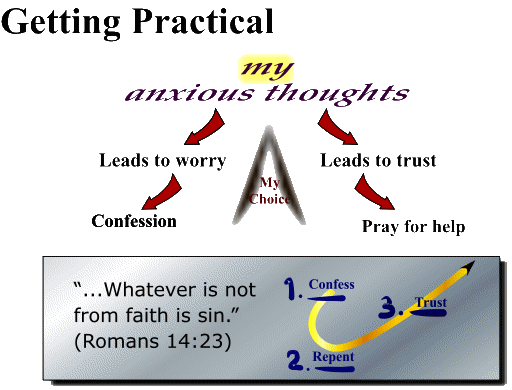We have a choice on how to handle our anxious thoughts.
Faith is ______________. The righteous will live by faith.Jesus commanded us to stop worrying. Have you accepted the truth that your worry is sin and reveals that you have not been trusting in your Heavenly Father? Have you confessed this attitude of self-reliance and your sin of anxiousness to the Lord? You perhaps have used excuses for your worries.
By acknowledging our reliance on the Lord, we reject our dependence upon ourselves. "Blessed are the poor in spirit, for theirs is the kingdom of heaven. Blessed are those who mourn, for they shall be comforted." (Matthew 5:3-4). Humbling precedes healing; repentance comes before restoration. Hope grows as we understand how to deal with our problems. Despair comes when we do not see the way to change things. By pointing out the way our decisions have brought us where we are today, we are also highlighting the way out. We have a choice. We can choose to do different things.
|
||



